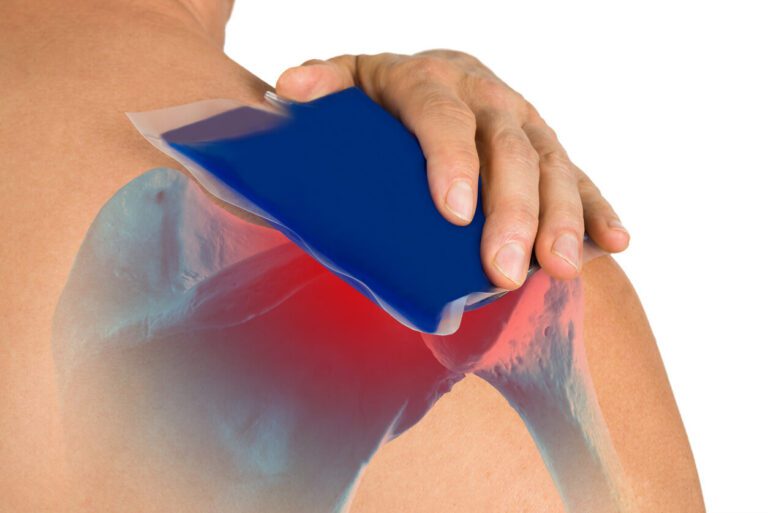
Shoulder pain is never ideal, especially when it interferes with your ability to enjoy daily activities, hobbies, or sports. For many active adults and sports enthusiasts, this pain may stem from an issue within the rotator cuff. Recognizing the potential causes of rotator cuff pain and understanding when to seek treatment is critical to regaining mobility and comfort.
This post will provide you with the information you need to identify symptoms, explore treatment options, and learn how Dr. Paul Meli at Paul Meli Orthopedics provides expert care for shoulder and rotator cuff pain.
Understanding the Rotator Cuff and Its Role
The rotator cuff is a group of muscles and tendons that stabilize the shoulder joint and allow for a wide range of movement. These muscles work together to keep the top part of your arm bone securely in your shoulder socket. While the rotator cuff is vital for many activities, it is also highly susceptible to injury and wear.
Common Causes of Rotator Cuff Pain
Rotator cuff injuries can occur due to various factors, including overuse, trauma, or degeneration over time. Common causes include:
- Overuse from repetitive movements: Frequent overhead motions, often seen in sports such as baseball, swimming, or tennis, can strain the rotator cuff.
- Trauma from accidents or falls: A single incident, such as falling on an outstretched arm, can cause serious rotator cuff damage.
- Aging and gradual wear: Degenerative changes can weaken tendons, increasing the likelihood of tears in individuals over age 40.
Symptoms such as pain when lifting the arm, shoulder weakness, and difficulty performing daily activities may point to a rotator cuff injury.
When is it Time to Seek Rotator Cuff Treatment?
Sometimes, mild shoulder pain resolves with rest and home care. However, specific symptoms and scenarios indicate the need to seek professional rotator cuff tear treatment:
- Persistent Pain: If shoulder pain continues for several weeks and shows no improvement with rest or over-the-counter medications, it is time to see a specialist.
- Nighttime Discomfort: Pain that disrupts your sleep or gets worse when lying on the affected shoulder warrants immediate attention.
- Limited Range of Motion: Difficulty lifting the arm, reaching behind your back, or performing normal activities signals a significant issue.
- Weakness in the Shoulder or Arm: A noticeable loss of strength, making it difficult to carry objects or perform tasks, suggests potential rotator cuff damage.
- Audible Clicking or Popping Sounds: Grinding sensations when moving your arm may point to a serious shoulder injury requiring medical attention.
Seeking treatment early can prevent further damage and increase your chances of a full recovery.
Types of Rotator Cuff Treatments Available
Treatment for rotator cuff injuries varies depending on the severity of the tear and your lifestyle needs. With advancements in modern medicine, there are numerous options to help alleviate pain and restore shoulder function.
Nonsurgical Treatments
Nonsurgical options are typically the first line of treatment for individuals with mild to moderate injuries. These may include:
- Physical Therapy: Strengthening exercises can help improve shoulder stability and mobility while reducing pain.
- Medications and Steroid Injections: Anti-inflammatory medications or corticosteroid injections can alleviate pain and control inflammation.
- Activity Modification: Limiting activities that require repetitive overhead motion gives the shoulder time to heal.
- Hot and Cold Therapy: Alternating heat and ice can relieve pain and swelling.
Surgical Treatments
For severe rotator cuff tears that do not respond to conservative methods, surgery may be necessary. Surgical options include:
- Arthroscopic Repair: A minimally invasive procedure where tiny incisions and specialized instruments are used to repair torn tendons.
- Open Surgery: For complex or large tears, open surgery may allow for better access to repair the damaged area.
Recovery from surgery includes physical therapy to rebuild strength and regain motion.
Why Choose Dr. Paul Meli for Rotator Cuff Tear Treatment?
Dr. Paul Meli at Paul Meli Orthopedics in Fort Lauderdale, Florida, offers unparalleled expertise in addressing shoulder and rotator cuff pain. With years of experience and a dedication to patient care, Dr. Meli ensures you receive a personalized treatment plan tailored to your specific needs. Whether you require physical therapy or advanced surgical techniques, Dr. Meli and his team are committed to helping you achieve lasting relief and recovery.
By focusing on cutting-edge methods and compassionate care, Paul Meli Orthopedics has become a trusted name in rotator cuff tear treatment. Numerous patients have regained their active lifestyles thanks to Dr. Meli’s guidance and expertise.
Regain Control of Your Shoulder Health Today
Do not allow shoulder pain to limit your life or prevent you from doing the things you love. Seeking timely rotator cuff tear treatment can make all the difference in your recovery and overall quality of life.
If you are experiencing shoulder pain or suspect a rotator cuff injury, schedule a consultation with Dr. Paul Meli at Paul Meli Orthopedics today. Contact us at (954) 324-7711 or use our Request an Appointment form.
Take the first step toward feeling like yourself again.
Citation:
Torn rotator cuff: Rotator Cuff Tear: Symptoms & Treatment

